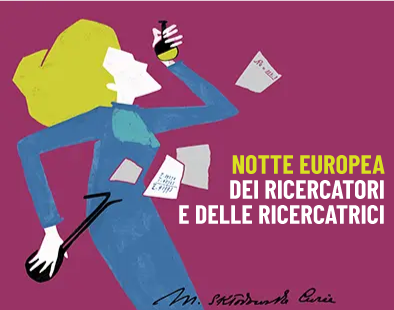



research
The Enrico Fermi Research Center - CREF promotes original and high-impact lines of research, based on physical methods, but with a strong interdisciplinary character and in relation to the main problems of the modern knowledge society.
People
third mission
The CREF was born with a dual soul: a research centre and a historical museum. Its aim is to preserve and disseminate the memory of Enrico Fermi and to promote the dissemination and communication of scientific culture.
news
Publications, news, press review. For interviews, filming, and press contacts, please write to comunicazione@cref.it

third Mission
Higher education and advanced training
CREF actively promotes the development of young scientific talent through a structured and diverse higher education program that aligns with its public engagement mission and in close collaboration with academic institutions and strategic partners. Key initiatives include:
Doctoral Scholarships
Through agreements with the universities “Sapienza,” “Tor Vergata,” “Roma Tre,” and the University of Bologna, CREF funds doctoral scholarships in Physics, History of Physics, and Electronic Engineering. PhD students are fully involved in the Center’s museum and science communication activities.
Internships and Training Scholarships
We offer curricular internships in physics and communication and scholarships for undergraduate, graduate, and doctoral students who want to contribute to our museum’s educational and outreach activities.
Scientific Development and Networking
We promote opportunities for growth and exchange for university students, PhD students, and post-docs. For example, we organized the International Day of Light 2024 with the Young Minds group from Via Panisperna, focusing on optics and photonics. The event featured presentations by experts from universities (Sapienza, Roma Tre), the CNR, and CREF, along with a roundtable on frontier topics like “Photonics between Artificial Intelligence and Quantum Information.” CREF has also hosted “PhD Days,” which are exchange and training days for doctoral students, in collaboration with the University of Roma Tre and IMT Lucca.
Cutting-Edge Research Seminars
We propose seminars with leading figures from the academic world who present cutting-edge research in physics. These events are open to students and researchers from other universities and institutions, including remote participation (past speakers include Rachel Grange from ETH Zurich, Sushil Mujumdar from TIFR Mumbai, Prof. François Lafond from the University of Oxford, and Samir Suweis from the University of Padua).
Interdisciplinary Schools and Workshops
We propose initiatives that develop cross-disciplinary skills, such as the Summer School on “Economic Fitness and Complexity” (now in its third edition), in collaboration with UNU-MERIT in Maastricht. Geared towards PhD students, young researchers, and professionals, the program offers a comprehensive introduction to the economic complexity framework, alternating between theoretical and practical lessons with experts on the advanced applications of the methodology in social sciences. In April 2025, we will host the first edition of a multidisciplinary Hackathon (neuroscience, statistical and network physics, computer science) as part of the international “BrainHack” project. This initiative will involve young researchers from different faculties, promoting collaboration, networking, and skill exchange with a specific focus on the brain.
Emerging Skills in Artificial Intelligence
Recognizing the revolutionary potential of Natural Language Processing (NLP) and Large Language Models (LLMs) for research, CREF, in partnership with Pi School, has organized an advanced course for its researchers and external collaborators. The goal is to provide cutting-edge skills in these technologies to accelerate discovery and innovation across various scientific disciplines, with a particular focus on physics. The collaboration with Pi School, founded by Translated and a leader in practical AI training, ensures a high-quality standard.
Continuous Professional Training
CREF actively collaborates with the Science Net consortium to organize training days for science journalists (2024 and 2025 editions), with participation from our research staff. The first edition focused on nuclear topics, while the second was on quantum mechanics. In 2024, we participated in a pedagogical masterclass as part of the “Karriere Quantum” Project, organized by the German Ministry for Research and the Goethe Institutes of Europe. The initiative allowed school principals, teachers, and educators to update their knowledge on teaching new technologies and the activities offered in this sector.


